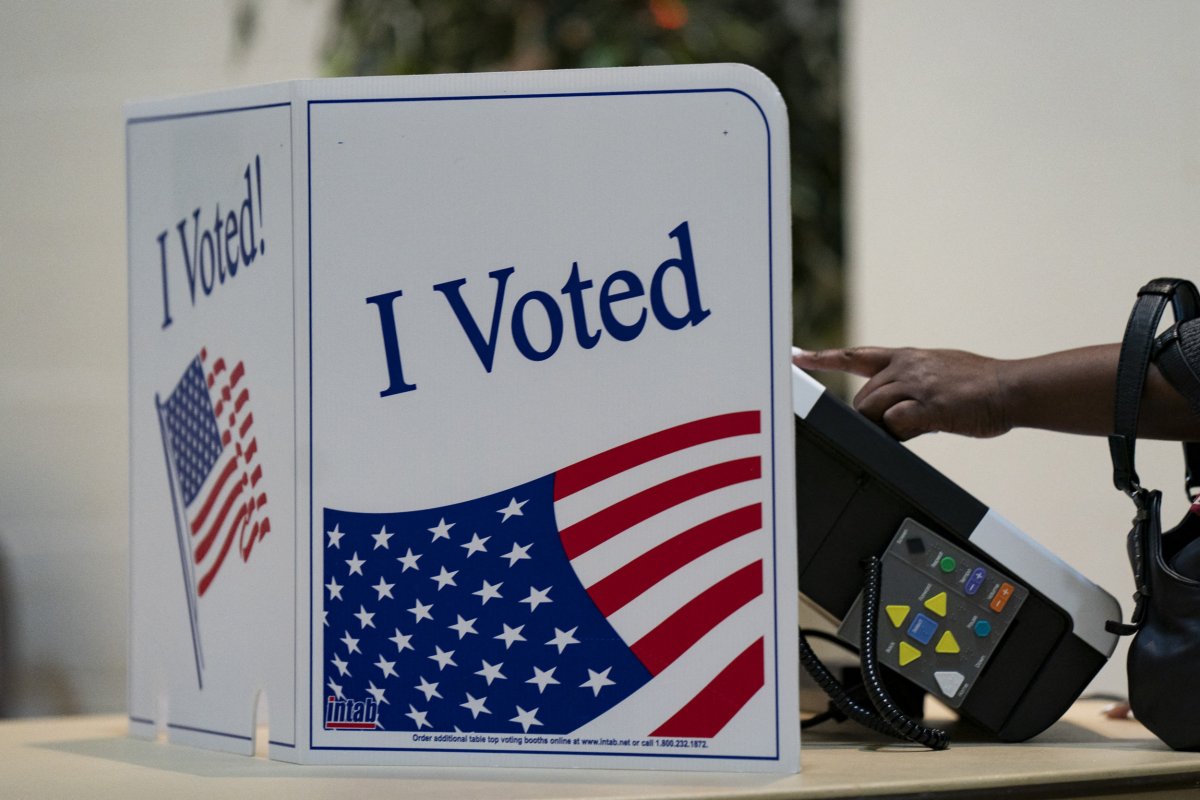Bunchy Carter
I'll Take The Money Over The Honey
From Decline to Revival—Why Democrats Must Repair Their Relationship with Black Voters
The Democratic National Committee (DNC) is conducting a post-2024 "autopsy"— not just to diagnose the party's missteps, but to reset its trajectory and rebuild for the future, while keeping a sharp eye on the upcoming midterms and the pivotal 2028 presidential contest.
The party's crucial base, communities of color, drifted away from the party: either opting out, or supporting Donald Trump. If the Democratic Party hopes to remain competitive with the GOP, it must recover much of its base: Black voters. After all, it's well known that, absent the Black vote, Joe Biden would have lost in 2020.
Republicans succeeded in capturing more Black voters than expected. Had Democrats taken a page out of the Republicans' playbook, they'd likely have won, saving the country—and world—from the current turmoil.

A person votes at a polling location in February 3, 2024, in West Columbia, South Carolina during the South Carolina Democratic Primary. ALLISON JOYCE/AFP via Getty Images
An important part of the problem in the last election centered on declining Black turnout, not vote share. Consider the following comparison between Biden's numbers in 2020 to Kamala Harris' in 2024: Biden captured 89 percent of the Black vote; Harris just 85 percent. In swing states, it was even closer. Biden won 91 percent of the Black vote to Harris' 89 percent.
Real differences emerge when it comes to turnout. Black turnout was down by 6 percent nationally and 2 percent in swing states relative to 2020. All things equal, Harris would have likely beat Trump in 2024 had Black turnout simply matched what Biden produced.
What explains the reduction in Black turnout?
In focus groups we conducted at Black Insights Research, Black voters in swing states and elsewhere expressed disappointment in the performance of the Democratic Party. Promises were not kept. One Black man we talked to epitomized the Black community's discontent with the Democratic Party after the election, explaining that, "They [Democrats] take Black people for granted" and "need to try harder." This sentiment is shared by others across the country.
One simple way to remedy this concern is to proactively reach out to the Black community. This approach makes a difference. Data from the 2020-2024 Cooperative Election Study Recontact Survey indicated that the Biden campaign contacted 69 percent of the Black community in 2020, but the Harris campaign contacted just 59 percent in 2024, a finding we corroborated in our 2024 data set.
What's more, among those in the Black community who were contacted in 2024, our data indicated that a whopping 72 percent were high-propensity voters compared to a paltry 28 percent of the low-propensity group.
Social science suggests this was a mistake. High-propensity voters are already primed to vote, so the information conveyed to them by campaigns has little influence on turnout. Low-propensity voters, a group that requires more information and persuasion to get out and vote, benefit much more from campaign contact. This, in turn, tends to increase their turnout. With this in mind, Black Insights Research tested this theory on data we collected on the Black community during the 2024 campaign, applying it to the Peach State.
Had Harris tailored her campaign to reach more low-propensity voters in Georgia, we estimate (based on our models) she would've added more than 197,000 Black voters to the electorate in 2024, overcoming her vote deficit of 115,000, winning the state outright. This remains true even when accounting for the small percentage of new Black voters who may have voted for someone other than Harris.
Furthermore, with the excitement in the Black community surrounding her campaign early on, outreach—especially to low-propensity Black voters, may have proven crucial. Had the party better capitalized on this momentum, our analysis suggests Harris may have prevailed in other swing states, increasing the likelihood of her beating Trump.
This approach, mobilizing low-propensity voters, has proven successful in the past for grassroots groups in the state of Georgia. In the ultimate twist of irony, mobilization of low-propensity (mainly white) voters was used to great effect by the Trump campaign.
Democrats and the Harris campaign faced many obstacles in 2024, not least of which was a short runway, along with the party's perceived policy indifference to the Black community. Harris (and her campaign) had no control over this.
Nevertheless, with a war chest outstripping that of her opponent, Harris had the resources to run a targeted get-out-and-vote campaign aimed at mobilizing low-propensity Black voters. Her campaign failed to do so effectively.
Let's be real: without support from the Black community, there is no viable Democratic Party.
If absolutely nothing else, pursuing Black low-propensity voters is the one lesson Democrats can learn from Republicans as they plan for 2026 and beyond.
Christopher Sebastian Parker and Christopher Towler lead Black Insight Research, a research firm that specializes in seeking solutions to more equitable outcomes for the Black community.
Parker is professor of political science at the University of California at Santa Barbara.
Towler is associate professor of political science at California State University at Sacramento, and the director of the Black Voter Project.
via: Why Democrats Must Repair Their Relationship with Black Voters | Opinion


 ?
?



